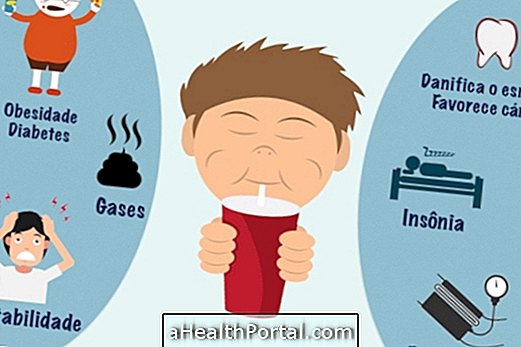Anger, sadness, insecurity, fear or revolt are some of the negative emotions that can take over our mind, which come often without warning and without knowing what really caused this bad feeling. In these situations, it is important to remain calm, trying to identify the reason that caused the bad feeling and focusing the energy on enjoyable activities.
It is not always easy to overcome negative emotions, as they often arise from delicate situations such as arguments, excessive worry, job change, disgust or disillusionment, for example. So for the well-being of the body and mental health, when negative emotions arise, you should consider the following tips:
1. Keep Calm
In order to control and overcome your emotions, the first step is to always be calm and not despair and for this you must:
- Stop what you are doing and take a deep breath, breathing the air through your nose and releasing slowly through your mouth;
- Try to relax by moving your body, swinging your arms and legs and stretching your neck to the right and to the left.
- Go get some fresh air and try to relax, counting from 60 to 0, slowly and gradually, looking up if possible.

Besides this small attitudes, you can also try to calm and relax with the help of medicinal plants, taking a natural tea of valerian or passion fruit for example.
2. Identify the Reason
Identifying the reason for negative feeling is the second thing you should try to do after you calm down, and it is very important that you take some time to think and reflect on the situation. Sometimes venting with someone about what you are feeling and about the situation can also help because in this way you can also analyze points of view that you had not considered.

Once you have identified the reason that led to emotional discontent, you should try to plan what you will do from now on to avoid this kind of uncontrolled, even if it means moving away from someone specific or some particular situation.
3. Make a list of feelings
Taking time to build a list of feelings is another very important tip that can help you overcome a phase of negative feelings.
To do so, simply make a list and divide it into two parts, where on one side should write a list of positive and pleasant feelings you want to feel, such as confidence, courage or calm, and on the other side should write all negative feelings which feels like fear, anger or anguish.

This type of lists are very useful to help deal with and overcome feelings, and can also be performed when there are doubts about whether a person or situation is being harmful, functioning in this case as a list of the positive and negative feelings that are transmitted.
4. Do what you love
Doing enjoyable activities like watching a movie, going for a walk, writing a diary, painting, listening to music, or reading a book is another tip that helps overcome negative feelings. These activities help manage and overcome negative feelings, as attention is focused on the well-being and pleasure that the activity brings you.
In order to achieve positive feelings it is necessary to do something that can give pleasure like watching a movie, writing in a journal, listening to a song or enjoying a food, for example.

Controlling emotions is not always easy, because it is necessary to manage negative thoughts well, and to be more optimistic and positive.
How to think positively
To control emotions it is important to focus daily on positive thoughts, seeking to be optimistic and focusing on solutions rather than problems. So, some of the ways that can help you think positive include:
- Record daily positive moments : at the end of each day should record 3 pleasant moments that have happened, writing or photographing, for example;
- Laughing and smiling : You should keep your mood positive and stable during the day, laughing at yourself and others;
- Be faithful to your values : it is important to record the core values of life in a role and live by following them whenever possible;
- Living with important people : You should keep in touch with people who provoke pleasant feelings, like family or close friends;
- Plan the day to day : to be positivist you should plan the work routines, domestic or leisure, using a calendar, thinking about what you will get.
- Be cautious and considerate : one should evaluate all situations well, anticipating what can happen from positive to negative;
- Be flexible : the person should try to adapt to the situations, always putting himself in the other person's place.
These are some rules that can help you to be more positive, however it is important to remember that being positive is above all a choice that each one should make. In addition, having healthy habits, such as maintaining a balanced diet, exercising and sleeping well, is essential to feel good and in balance, also contributing to positive shape and well-being.























